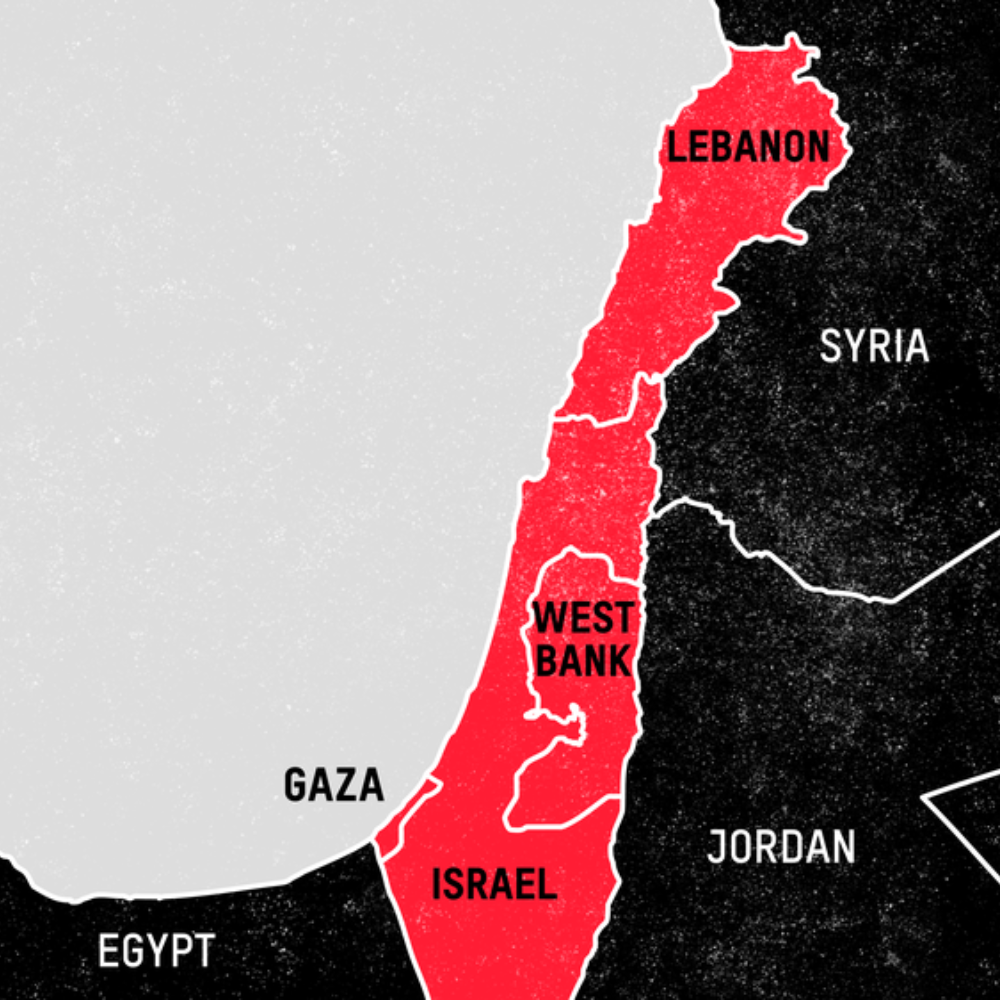Make an Emergency Donation
Make sure your gift to Oxfam Canada goes directly to where it's most needed, without delay, with a secure online donation
The Situation
People in Gaza have endured 21 months of bombing, death, and destruction.
Gaza Strip
Displacement Since the ceasefire collapse on 18 March, Israeli forces have escalated bombardment across the Gaza Strip and expanded ground operations. This has resulted in hundreds of casualties, destruction of civilian infrastructure, and large-scale displacement.
- More than 640,000 Palestinians in Gaza were displaced between 18 March and 3 June
- Over 202,000 of them have been displaced since 19 May
- People have been confined to ever-shrinking spaces, with 82% of the Gaza Strip now within Israeli-militarized zones or placed under displacement orders since 18 March
- Since 18 March, 50 displacement orders have been issued, placing about 78 per cent of the Gaza Strip under displacement
Food Crisis
- 100% of the population (2.1 million) projected to face high levels of acute food insecurity classified in IPC Phase 3 (Crisis) or above
- 470,000 people facing catastrophic levels of food insecurity (IPC Phase 5)
- As of end of May, about 279,000 daily meals were prepared by 62 kitchens, down from about 1 million daily meals in the beginning of April
- The nutrition situation of children is getting worse with indication of 5.8% diagnosed as acute malnutrition, up from 4.7% in the first half of May, and almost 3 times higher than the cases in February during the ceasefire
Water and Sanitation
- 72% of WASH assets and facilities now falling within the Israeli-militarized zone or in areas that have been placed under displacement orders since 18 March
- 90% of households have experienced water insecurity
- 93% of households faced water insecurity
Humanitarian Aid Since 19 May, limited number of humanitarian aid trucks were allowed to enter. Only wheat flour, nutrition supplies, medical supplies and later on water treatment supply (chlorine) from UN and medical agencies were allowed to enter.
The militarized distribution system through the Gaza Humanitarian Foundation was launched on 27 May:
- Since 27 May, at least 82 Palestinians killed and 506 injured reportedly by open fire near the GHF distribution center while trying to reach food distribution points in Rafah and Deir al Balah
Number of People Affected in Gaza (as of June 4, 2025):
- Over 54,607 Palestinians confirmed to have been killed
- 460 humanitarian workers killed
- 1,580 health workers killed
- 113 Civil Defence Staff killed
- 220 journalists killed
- Estimates of over 125,341 injured
West Bank
Annexation has accelerated significantly, propelled by intensified military operations, widespread demolitions, escalating settler violence, the establishment of new unauthorized outposts, legislative formalization via the Knesset, and the transfer of key powers to the Ministry of Diaspora and Antisemitism.
- Since the launch of Operation Iron Wall on January 21st, over 120 Palestinians have been killed in the West Bank
- As of mid-May 2025, UNRWA estimates that more than 7,000 families—over 33,000 individuals—remain forcibly displaced from Jenin, Nur Shams, and Tulkarm refugee camps
- Total number of newly approved settlements since 7 October 2023: 49—compared to a prior average of seven per year over the past three decades
- In 2025 alone, settlers have injured over 220 Palestinians—an average of 44 per month—the highest rate recorded in two decades

October 7, 2023
Conflict begins
January 21, 2025
Operation Iron Wall launched in West Bank
March 18, 2025
Ceasefire collapse
Full blockade begins
50 displacement orders issued
May 19, 2025
Limited humanitarian aid allowed
Over 202,000 displaced since this date
May 27, 2025
Militarized distribution system launched
82+ killed, 506+ injured at food distribution points
June 4, 2025
Current toll:
54,607+ Palestinians killed
125,341+ injured
640,000+ displaced since March 18
July 2025
Oxfam Response:
• Clean water to 60,000+ people
• WASH facilities for 40,000
• Mental health support to 2,000+
• Cash assistance to 700+ households
21 Months of Crisis
82% of Gaza Strip under displacement orders or militarized zones
100% of population facing acute food insecurity
93% of households facing water insecurity
Oxfam's Response
Despite Israel's 18-week siege, Oxfam and partners have been able to deliver:
- Clean water to over 60,000 displaced people in makeshift camps
- Repairs for water and sanitation facilities reaching 40,000 people
- Essential water and sanitation services, including solid waste collection in 25 sites
- Hygiene promotion
- Mental health and psychosocial support, including case management to over 2,000 people
- Support for more 200 farmers, including agriculture supplies and rehabilitation
- Cash assistance (MPCA, cash for protection) supporting over 700 households
Current Challenges
- 3.5 months of a full blockade on the entry of aid and any other supplies into Gaza
- Market depletion: $10 to $15 for 1kg of flour; $150 for one basket of eggs; $200 for 1kg of coffee
- Fuel: Gaza could face a complete communications blackout; intensive care units and water production facilities at risk of shutting down imminently
- No distribution right now in Gaza; the militarized distribution system through Gaza Humanitarian Foundation putting people at severe risk
Ceasefire Planning
Oxfam is preparing for potential ceasefire scenarios with:
- 100+ trucks pre-positioned in Amman
- International staff (WASH, MEAL) ready in Amman
- Plans to follow population movements and scale-up cash, WASH, and protection programs